#christine daigle
Text
ace books ace books we got 'em


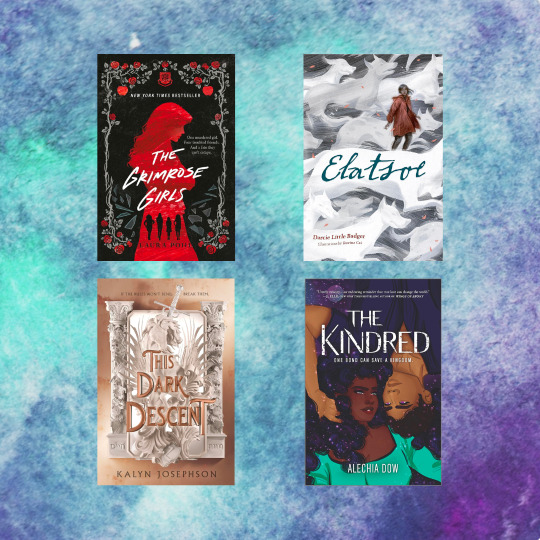

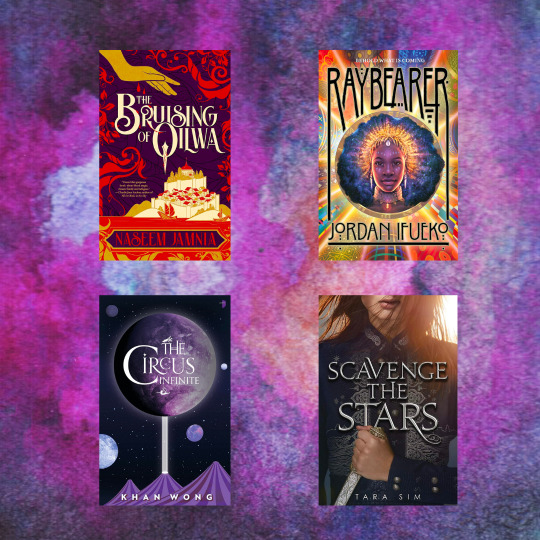
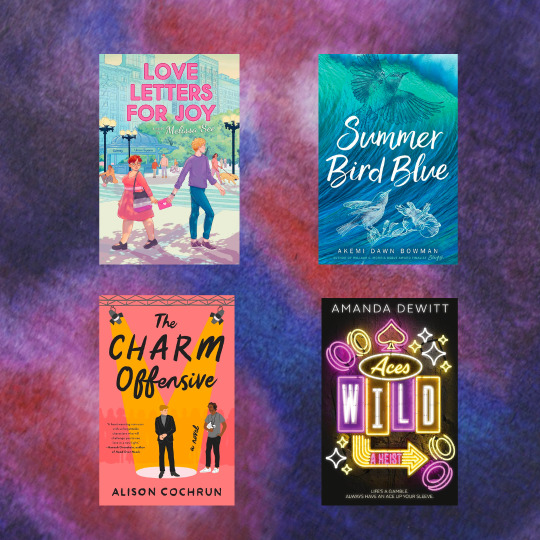
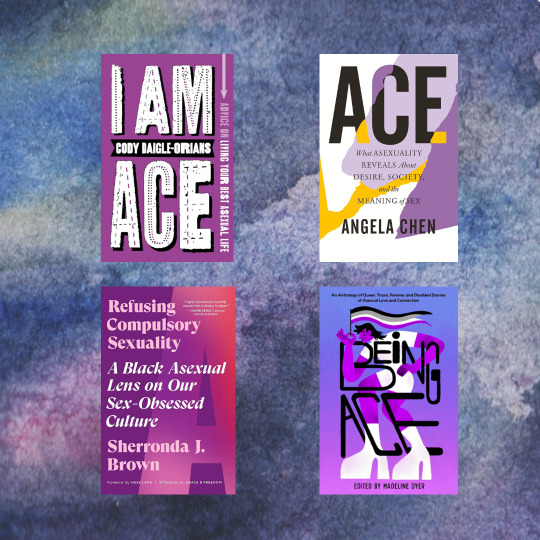
Beneath the Citadel by Destiny Soria
Beyond the Black Door by A.M. Strickland
Little Thieves by Margaret Owen
What We Devour by Linsey Miller
The Grimrose Girls by Laura Pohl
Elatsoe by Darcie Little Badger
This Dark Descent by Kalyn Josephson
The Kindred by Alechia Dow
The Reckless Kind by Carly Heath
The Final Curse of Ophelia Cray by Christine Calella
Silver in the Mist by Emily Victoria
Not Your Backup by C.B. Lee
The Bruising of Qilwa by Naseem Jamnia
Raybearer by Jordan Ifueko
The Circus Infinite by Khan Wong
Scavenge the Stars by Tara Sim
Love Letters for Joy by Melissa See
Summer Bird Blue by Akemi Dawn Bowman
The Charm Offensive by Alison Cochrun
Aces Wild by Amanda Dewitt
I Am Ace by Cody Daigle-Orians
ACE by Angela Chen
Refusing Compulsory Sexuality by Sherronda J Brown
Being Ace ed by Madeline Dyer
799 notes
·
View notes
Text
Husband & Wife Duo Alabaster Grace Release New Single “Wait Upon The Lord”

Husband and wife duo Brad and Joanie Perry, better known to fans as Alabaster Grace, are celebrating the release of their latest single, “Wait Upon the Lord,” from Westar Media Group.
Brad Perry, a highly decorated former NASA rocket scientist, and his wife, Joanie Perry, a dedicated educator—together known professionally as Alabaster Grace—once again called on the skills of multiple Dove Award-winning producer Chris Bevins (producer and keyboards for Selah, Christine D’Clario, Salvador, Jaci Velasquez) to bring the song to life.
In addition to serving as keyboardist, Bevins brought in some of Nashville’s other finest studio musicians for the recording, including drummer Dan Needham (Amy Grant, Jeremy Camp, Michael McDonald, Sting), guitarist Mike Payne (Casting Crowns, Francesca Battistelli, Mandisa, Lauren Daigle, Natalie Grant), and bassist Jacob Lowery (Gaither Vocal Band, Seth & Nirva).
The highly anticipated follow-up to “Being in Your Presence,” the duo’s most recent single, “Wait Upon the Lord” is an uplifting and encouraging song that reminds listeners that God is faithful to give us the strength we need in every situation.

“Wait Upon the Lord” represents something of a departure from Alabaster Grace’s usual musical style. Weaving Americana vibes throughout the ballad, then offering the listener a catchy, can’t-get-it-out-of-your-head chorus, “Wait Upon the Lord” has both fans and industry insiders excited.
“Alabaster Grace does it again with another great single,” declares Kathryn Ambrose of Westar Media Group. “Wait Upon the Lord” is a joyful song that tells us the Lord will be there for us through everything. This is a must-listen for the Fall!”
“We have had the pleasure of working with Brad and Joanie on several occasions, and their love for the Lord and His music is evident in everything they do,” add Paul Gibbs and Nate Miller of NoteSpire Music. “The Scripture-based lyrics of their songs, paired with beautiful melodies and accompaniments, help draw each listener closer to the heart of God.”
“Brad and Joanie harness the power of the Word to bless so many with the message of hope and encouragement in this world of craziness and prophetic happenings!” says Rac Man Christian Radio’s Jesse Martin.
https://youtu.be/9B7Cq2Ib6Ls
The Perrys credit the Lord with delivering the right message at the right time for the song.
“We were asked to do special music for the service at our home church,” explains Alabaster Grace’s primary lyricist, Joanie Perry. “Brad said, ‘Joanie, we need to write a song that will go with the pastor’s message.’ We prayed on it, and ‘Wait Upon the Lord’ was the answer to our prayer. The song is based on Isaiah 40, which emphasizes the importance of putting our hope and trust in the Savior and waiting on Him to give us strength for each day.”
“It is an uplifting and encouraging song stressing that God will give us the strength we need,” adds Brad Perry, who wrote the guitar parts and the bridge, and contributed to the arrangement. “When we are tired and weary, He will energize us. We will mount up with wings like eagles, soaring above the storms of our lives, knowing that God will get us through every circumstance.”
To stream Alabaster Grace’s new single, “Wait Upon the Lord,” click here, or watch the lyric video here.
Read the full article
0 notes
Link
I got to attempt to explain what Mandala is with @1cdaigle and @JPRindfleisch. If you've seen my weird trailers or read any of the episodes and wondered, "Where did this come from?" now's your chance to dig into what insanity brought this story out of my dreams and into reality.
#serial fiction#serialfiction#podcast#serial fiction show#jp rindfleisch#christine daigle#kindle vella#burgerpunk#Edward Eidolon#dreamcore#weirdcore#weird fiction#web fiction#walk ins#mandala effect#dreams#mandala#readers#writers#self publishing#self published author#indie author
10 notes
·
View notes
Photo

The Bad Seed (1956)
Patty McCormack was eight years old when she starred as Rhoda Penmark on the stage play The Bad Seed, itself an adaptation of William March’s novel of the same name. The Bad Seed was a sensation for the 46th Street Theatre (now the Richard Rodgers Theatre in New York City, current home of Hamilton), and so too was McCormack as the most sociopathic child character ever seen on Broadway. Not often will the core actors of a stage play or musical return for a film adaptation. So what a surprise it must have been when Warner Bros. and director Mervyn LeRoy brought The Bad Seed – released two years after its Broadway debut – to theaters, with many of the crucial actors for the stage play reprising their roles. The Bad Seed, due to its plot’s construction, necessitates an incredible ensemble to deliver its fraught emotions and controversial themes.
In another unusual development, LeRoy – an uncategorizable director who could work with any genre or subgenre and was a master of adapting stage plays to screen – seems to not have coached his actors in modifying their performances for film (read: less theatrical emotions). No matter, as The Bad Seed continues to hold viewers in its grip, interrogating the balance of nature and nurture in macabre fashion.
Somewhere in a decently small, middle to upper-middle class town in the American East, the Penmark family is readying themselves for the days ahead. Father Kenneth Penmark (William Hopper) is a Colonel in the U.S. military, and needs to report to Washington, D.C. This will leave mother Christine (Nancy Kelly, reprising) and their child Rhoda (McCormack, reprising) alone for some time. But there will be frequent, welcome company from their landlady Monica (Evelyn Varden, reprising) and unpleasant company from groundskeeper Leroy Jessup (Henry Jones, reprising). Rhoda is an intelligent, sweet, spoiled young girl whom the adults – with a few notable exceptions – adore and, perhaps, too excessively compliment. Her façade breaks down in a moment when she expresses her disappointment in losing out on her class penmanship medal to a boy named Claude Daigle. A temporary frustration, reason the adults. During a lakeside class picnic, Claude Daigle drowns and Rhoda might be the last person to have seen him alive. When she returns home from the picnic, Rhoda is nonchalant, calling the rush of first responders exciting. A shaken Christine, the film (and the stage play’s) main character now must confront her swirling emotions and thoughts – not only for the deceased Claude Daigle, but for the possibility that Rhoda may have played a role in his death.
The Bad Seed also stars Eileen Heckart (reprising) as Claude’s mother, Hortense, in a brief but impactful two scenes. Joan Croydon as teacher Ms. Claudia Fern reprises, too. Character actors Paul Fix, Jesse White, Gage Clarke, and Frank Cady as Mr. Daigle round out the cast.
Upon its Broadway debut, The Bad Seed caused a stir among theatergoers. For those who had not read the book, the idea of an evil child in narrative art had never caught on before. The trope is well-worn in today’s books, movies, and television, but in the 1950s it was unique. Audiences left performances of The Bad Seed outraged towards the developments onstage – especially towards the book and the play’s original ending. The movie adaptation did not provoke such an uproar, in part due to the Hays Office, enforcing the Motion Picture Production Code (a self-censorship guideline from the major studios that enforced from 1934 until the creation of the MPAA ratings system in 1968), altering the conclusion. The Code sometimes inspired clever, inventive filmmaking from directors attempting to prod its puritanical edges. But more often than not, it hampered films, including the subject of this write-up. Mervyn LeRoy’s adaptation of The Bad Seed contains an anticlimactic, out-of-nowhere ending – all thanks to the Code – that elicited exasperated shouting from yours truly. Just as the orchestra swells in the film’s dying seconds, a title card appears urging the audience not to spoil the film’s climax to others. For good reason, too – I would have been much more disinterested in the movie if someone only gave me generalities of the plot with a fully-spoiled ending. The Bad Seed represents one of the most intriguing stories of how its enforcers influenced the artistic direction of the film before it ever came to theaters.
Everything else about The Bad Seed, however, is fantastic filmmaking.
It begins with the acting ensemble. As the first-billed actress, Nancy Kelly, whose career had been exclusively on the stage over the last decade before this film adaptation, has the performance of the film in a role demanding her to wrestle with the primal forces of nature and a parent’s instinct to nurture. Theatrical acting may not suit some audiences, but Kelly’s tenuous glances, uncertain speech, and inability to process the possible actions of her darling daughter help the viewer understand the horrific dilemma she soon finds herself in. Such dilemmas are not possible without Patty McCormack as Rhoda. McCormack was eleven years old when The Bad Seed made its cinematic debut, two years removed from its initial Broadway run. The two years make a notable difference. The dramatically mature content of The Bad Seed seems more suitable for a tween than a pre-tween – McCormack’s older age (relative to a younger child) lends greater credence to her character’s sociopathy.
The other two actors reprising their roles from the stage play have their characters nailed down as well. As the slimy Leroy Jessup, Henry Jones and his hunched posture and smarmy demeanor, positions Leroy as Rhoda’s foil. Rhoda and Leroy’s always-tense relationship is a masterful collaboration between the actors, age difference and all. Neither may be sympathetic characters, but one can always feel – even without dialogue – the mutual disregard both hold for the other. Eileen Heckart, as Hortense Daigle, is barely in the film. Hortense is inebriated in both of her scenes, oscillating between a range of damaging emotions that drunkenness can only accelerate. She is the one we feel most sorry for, as the hurt of losing her only child – and the suspicion she harbors towards Rhoda regarding her involvement in her son’s death – becomes the only part of her being.
Upon the stage play and the film’s release, the American public was still debating whether morality might be hereditary – an idea more en vogue mid-century as opposed to the present. I do not wish to delve into the depths of the speculative or pseudoscience, but this is the idea that animates much of Christine’s actions across The Bad Seed. So if her concerns and the actions of other sympathetic characters in this film seem silly in that psychological regard, note the difference in values and beliefs of the time before rendering more sweeping judgments. The film’s screenplay, by John Lee Mahin (1932’s Scarface, 1941’s Dr. Jekyll and Mr. Hyde), is fixated on this philosophical debate to the extent that the Hays Office seemed not to have cared about the near-constant consumption of alcohol from the adults across the entire film. This is not the uncomplicated existence that many audiences associate with 1950s American culture. Underneath of the coating of the placid Eisenhowerian America – comfortable lodgings for almost everyone, loving nuclear families, communities where everyone knows each other by name, lush open green spaces – is the acknowledgement of malevolence and ongoing trauma mostly left unmentioned. For its release date, The Bad Seed, in terms of its presented ideas and approach, is a daring work, and would inevitably spawn imitators.
Many of those imitators falls between genres, resting somewhere within the spectrums of horror films and thrillers. Most of the horrific details are out of sight. Violence occurs off-screen, leaving the audience to piece together the accounts of various characters in differing degrees of distress. In the film’s most abhorrent moment, one can hear the effects of a violent action – a decision that feels just as justified than if the filmmakers wanted to show some part of it. Like any thriller movie, a layer of tension applies across the picture, with Harold Rosson’s (1939’s The Wizard of Oz, 1952’s Singin’ in the Rain) disciplined cinematography performing visual slights-of-hand to keep viewers guessing. Rosson’s cinematography even incorporates atmospheric lighting in some instances to the extent that one could make the case this is a film noir. Where does The Bad Seed lie on a spectrum (or spectrums) of genres? I am not entirely sure myself, but I – as of the publication of this write-up – lean towards classifying this as a thriller movie that pulls from horror and film noir traditions.
By virtue of both its timing and understanding of psychology, Mervyn LeRoy’s The Bad Seed treats Rhoda’s sociopathy as if it is paranormal. That faux-paranormalism is why I suspect some consider The Bad Seed a horror movie. The Bad Seed, like many (but not all) films from Hollywood’s Golden Age, do not treat psychological concepts with much grace or nuance. So for a viewer in our present day who has never seen The Bad Seed or is aware of the narrative from the original novel or stage play, do not expect much skepticism over the concepts morality as hereditary or of the existence of natural-born killers. This is where The Bad Seed is most obsolete, and it is no minor weakness.
As the film concludes, The Bad Seed replicates the post-play entrances and bows that usually occur as the audience applauds at curtain. Well before too many movies relied on metatextual humor in the body of their screenplays, The Bad Seed, during these final credits, provides a physical, winking nod to all of the conflicted emotions that one has been harboring for its runtime. Though the film’s treatment of its sociopathic character is regressive in terms of how it frames neurodivergence, the acting ensemble boosts what otherwise might have been soapy slop to a fantastically chilling thriller.
My rating: 8.5/10
^ Based on my personal imdb rating. My interpretation of that ratings system can be found in the “Ratings system” page on my blog (as of July 1, 2020, tumblr is not permitting certain posts with links to appear on tag pages, so I cannot provide the URL).
For more of my reviews tagged “My Movie Odyssey”, check out the tag of the same name on my blog.
#The Bad Seed#Mervyn LeRoy#Nancy Kelly#Patty McCormack#William Hopper#Henry Jones#Eileen Heckart#Evelyn Varden#John Lee Mahin#Maxwell Anderson#William March#Harold Rosson#Alex North#TCM#My Movie Odyssey
16 notes
·
View notes
Text
Thats right! Now you can listen to me even more.
With the release of Kindle Vella, my co-host over at the Serial Fiction Show, Christine Daigle, noticed too few podcasts for serialized fiction. So, we made one.
The Serial Fiction Show has two podcasts. One for Readers, which gives a preview of the first episode along with an interview with the author. The other podcast is for Writers, where we dive deeper into the craft of writing serialized fiction.
Come check us out at SerialFictionShow.com
instagram
#author#authors podcast#podcast for writers#write away#writing#writing podcast#writer#writers#writers on tumblr#reading#serialfiction#vella#Instagram
2 notes
·
View notes
Photo

youtube
Over the past year we have been watching the old Sci Fi ‘B’ movies, which have been brilliant, some of the FX have made us laugh though, now we are on to old Horror movies and we watched this last night, and WOW!
Nancy Kelly played Christine Penmark (Mother)
Patty McCormack played Rhoda Penmark (Daughter)
Eileen Heckart played Hortense Daigle (Grieving Mother)
The acting of the three ladies was superb, Especially Patty McCormack because she was so young!
wb102
12 notes
·
View notes
Text
IL PLEUVAIT DES OISEAUX en tête des nominations du Gala Québec Cinéma 2020

En direct du salon de Guillaume Lambert, les nominations du Gala Québec Cinéma (qui ne fera pas l’objet d’un rassemblement télévisuel cette année, confinement oblige) ont été dévoilées cet après-midi.
En cette année dominée par les réalisatrices, 6 des meilleurs films sont réalisés par des femmes et 3 femmes sont en lice pour l’Iris de la Meilleure réalisation.
On parle bien sûr d’Antigone de Sophie Deraspe (Meilleur film, Meilleure réalisation, Meilleur scénario), La femme de mon frère de Monia Chokri (Meilleur film, Meilleure réalisation), Kuessipan de Myriam Verreault (Meilleur film, Meilleure réalisation, Meilleur scénario), Jeune Juliette d’Anne Émond (Meilleur film, Meilleur scénario), Il pleuvait des oiseaux et Louise Archambault (Meilleur film, Meilleur scénario, et 13 nominations au total, le record cette année), et du plus inattendu Fabuleuses de Mélanie Charbonneau (Meilleur film).
Ces films réalisés par des femmes sont rejoints dans les catégories de pointe par les « films de gars » Mafia Inc de Podz (Meilleur film), Sympathie pour le diable de Guillaume de Fontenay (Meilleure réalisation, Meilleur scénario), et Le vingtième siècle de Matthew Rankin (Meilleur premier film, Meilleure réalisation).
Un grand oublié : Xavier Dolan, qui a lancé deux longs métrages l’an dernier. On ne s’attendait pas à un couronnement du mal-aimé The Death and Life of John F. Donovan, mais l’excellent Matthias & Maxime aurait mérité plus d’honneurs. Il est quand même en nomination dans les catégories Meilleure interprétation féminine dans un rôle de soutien (Micheline Bernard), Meilleure interprétation masculine dans un rôle de soutien (Pier-Luc Funk), Meilleure direction de la photographie (André Turpin), Meilleur montage (Xavier Dolan), Meilleure musique originale (Jean-Michel Blais) et Meilleur maquillage (Erik Gosselin, Edwina Voda).
Du côté des interprètes, je suis soulagé que mon long métrage québécois préféré depuis longtemps, Le rire de Martin Laroche, ait été au moins reconnu pour les brillantes performances de Léane Labrèche-Dor (Premier rôle féminin) et Micheline Lanctôt (Rôle de soutien féminin).
Il faut aussi souligner les deux nominations comme acteur de Robin Aubert, pour Jeune Juliette (Premier rôle masculin) et Merci pour tout (Rôle de soutien masculin).
Et une pensée pour Andrée Lachapelle, qui nous a quittés récemment, nommée comme Meilleure actrice pour Il pleuvait des oiseaux.
Parlant d’Il pleuvait des oiseaux , félicitations à Will Driving West, un de mes groupes préférés, parmi les finalistes de la catégorie Meilleure musique originale.
Aussi, je suis très heureux pour l’extraordinaire Je finirai en prison d’Alexandre Dostie, en nomination pour l’Iris du meilleur court métrage.
LISTE COMPLÈTE DES NOMINATIONS
MEILLEUR FILM
Antigone - ACPAV - Marc Daigle
Fabuleuses - GO Films - Nicole Robert
La femme de mon frère - Metafilms - Sylvain Corbeil, Nancy Grant
Il pleuvait des oiseaux - Les Films Outsiders - Ginette Petit
Jeune Juliette - Metafilms - Sylvain Corbeil
Kuessipan - Max Films Média - Félize Frappier
Mafia Inc - Attraction Images - Antonello Cozzolino | Caramel Films - Valérie D'Auteuil, André Rouleau
MEILLEUR PREMIER FILM
Mad Dog Labine - Jonathan Beaulieu-Cyr, Renaud Lessard - 1er scénario de Jonathan Beaulieu-Cyr, Renaud Lessard
Sympathie pour le diable - Guillaume de Fontenay - 1er scénario de Guillaume de Fontenay, Guillaume Vigneault
Le vingtième siècle - Matthew Rankin - 1er scénario de Matthew Rankin
MEILLEURE RÉALISATION
Monia Chokri - La femme de mon frère
Guillaume de Fontenay - Sympathie pour le diable
Sophie Deraspe - Antigone
Matthew Rankin - Le vingtième siècle
Myriam Verreault - Kuessipan
MEILLEUR SCÉNARIO
Louise Archambault - Il pleuvait des oiseaux
Jean Barbe, Guillaume de Fontenay, Guillaume Vigneault - Sympathie pour le diable
Sophie Deraspe - Antigone
Anne Émond - Jeune Juliette
Naomi Fontaine, Myriam Verreault - Kuessipan
MEILLEURE INTERPRÉTATION FÉMININE | PREMIER RÔLE
Anne-Élisabeth Bossé (Sophia) - La femme de mon frère
Anne Dorval (Isabelle Brodeur) - 14 jours 12 nuits
Léane Labrèche-Dor (Valérie) - Le rire
Andrée Lachapelle (Gertrude | Marie-Desneige) - Il pleuvait des oiseaux
Noémie O'Farrell (Laurie) - Fabuleuses
MEILLEURE INTERPRÉTATION MASCULINE | PREMIER RÔLE
Robin Aubert (Bernard) - Jeune Juliette
Marc-André Grondin (Vincent «Vince »Gamache) - Mafia Inc
Patrick Hivon (Karim) - La femme de mon frère
Niels Schneider (Paul Marchand) - Sympathie pour le diable
Gilbert Sicotte (Charlie) - Il pleuvait des oiseaux
MEILLEURE INTERPRÉTATION FÉMININE | RÔLE DE SOUTIEN
Micheline Bernard (Francine) - Matthias & Maxime
Juliette Gosselin (Clara Diamond) - Fabuleuses
Micheline Lanctôt (Jeanne) - Le rire
Eve Landry (Rafaëlle [Raf]) - Il pleuvait des oiseaux
Geneviève Schmidt (France Gauthier) - Menteur
MEILLEURE INTERPRÉTATION MASCULINE | RÔLE DE SOUTIEN
Robin Aubert (Réjean) - Merci pour tout
Sergio Castellitto (Francesco « Franck » Paternò) - Mafia Inc
Pier-Luc Funk (Rivette) - Matthias & Maxime
Sasson Gabai (Hichem) - La femme de mon frère
Rémy Girard (Tom) - Il pleuvait des oiseaux
RÉVÉLATION DE L'ANNÉE
Catherine Chabot (Chloé Therrien) - Menteur
Sharon Fontaine-Ishpatao (Mikuan Vollant [16-21ans]) - Kuessipan
Alexane Jamieson (Juliette) - Jeune Juliette
Nahéma Ricci (Antigone) - Antigone
Lilou Roy-Lanouette (Yanna) - Jouliks
MEILLEURE DISTRIBUTION DES RÔLES
Jacinthe Beaudet, Tobie Fraser, Geneviève Hébert, Myriam Verreault - Kuessipan
Nathalie Boutrie (Casting NB) - Jeune Juliette
Nathalie Boutrie (Casting NB) | Francis Cantin, Bruno Rosato (Casting Cantin Rosato) - Mafia Inc
Sophie Deraspe, Isabelle Couture | Pierre Pageau, Daniel Poisson (Gros Plan) - Antigone
Karel Quinn (Casting Karel Quinn) | Lucie Robitaille (Casting Lucie Robitaille) - Il pleuvait des oiseaux
MEILLEURE DIRECTION ARTISTIQUE
Éric Barbeau - La femme de mon frère
Dany Boivin - Le vingtième siècle
Marie-Claude Gosselin, Jean Lebourdais - Il pleuvait des oiseaux
Sylvain Lemaitre - Jeune Juliette
David Pelletier - Mafia Inc
MEILLEURE DIRECTION DE LA PHOTOGRAPHIE
Yves Bélanger - 14 jours 12 nuits
Nicolas Canniccioni - Kuessipan
Josée Deshaies - La femme de mon frère
Mathieu Laverdière - Il pleuvait des oiseaux
André Turpin - Matthias & Maxime
MEILLEUR SON
Claude Beaugrand, Michel B. Bordeleau, Bernard Gariépy Strobl, Claude La Haye, Raymond Legault - The Song of Names
Sylvain Bellemare, Jocelyn Caron, Bernard Gariépy Strobl - Sympathie pour le diable
Serge Boivin, Olivier Calvert, Samuel Gagnon-Thibodeau - Ville Neuve
Luc Boudrias, Sylvain Brassard, Jean Camden - Mafia Inc
Bernard Gariépy Strobl, Sacha Ratcliffe, Lynne Trépanier - Le vingtième siècle
MEILLEUR MONTAGE
Geoffrey Boulangé, Sophie Deraspe - Antigone
Monia Chokri, Justine Gauthier - La femme de mon frère
Xavier Dolan - Matthias & Maxime
Myriam Poirier - 14 jours 12 nuits
Matthew Rankin - Le vingtième siècle
MEILLEURS EFFETS VISUELS
Alchimie 24 - Alain Lachance, Jean-Pierre Riverin - The Song of Names
Mikros - Véronique Dessard, Philippe Frère - The Hummingbird Project
Oblique FX - Benoit Brière, Louis-Philippe Clavet, Kinga Sabela - Sympathie pour le diable
MEILLEURE MUSIQUE ORIGINALE
Andréa Bélanger, David Ratté (Will Driving West) - Il pleuvait des oiseaux
Jean-Michel Blais - Matthias & Maxime
Jean Massicotte, Jad Orphée Chami - Antigone
Howard Shore - The Song of Names
Peter Venne - Le vingtième siècle
MEILLEURS COSTUMES
Valérie Lévesque - Mafia Inc
Ginette Magny - Jouliks
Patricia McNeil - La femme de mon frère
Patricia McNeil - Le vingtième siècle
Caroline Poirier - Il pleuvait des oiseaux
MEILLEUR MAQUILLAGE
Jeanne Lafond - Jouliks
Léonie Lévesque-Robert - Fabuleuses
Marlène Rouleau - Mafia Inc
Adriana Verbert - Le vingtième siècle
Erik Gosselin, Edwina Voda - Matthias & Maxime
MEILLEURE COIFFURE
Michelle Côté - The Song of Names
Stéphanie Deflandre - Mafia Inc
Nermin Grbic - Le vingtième siècle
Daniel Jacob - Fabuleuses
Martin Lapointe - Il pleuvait des oiseaux
MEILLEUR FILM DOCUMENTAIRE
Alexandre le fou - Pedro Pires | Pedro Pires
Mad Dog & The Butcher - Les derniers vilains - Thomas Rinfret | Divertissement Breakout - Vito Balenzano, Bruno Rosato | Vélocité International - Valérie Bissonnette
Soleils noirs - Julien Elie | Cinéma Belmopán - Julien Elie
Xalko - Hind Benchekroun, Sami Mermer | Les films de la tortue - Hind Benchekroun | Sami Mermer
Ziva Postec. La monteuse derrière le film Shoah - Catherine Hébert | Les Films Camera Oscura - Christine Falco
MEILLEURE DIRECTION DE LA PHOTOGRAPHIE | FILM DOCUMENTAIRE
Dominic Dorval, Vincent Masse, Thomas Rinfret, Richard Tremblay - Mad Dog & The Butcher - Les derniers vilains
Sami Mermer - Xalko
François Messier-Rheault, Ernesto Pardo - Soleils noirs
Pedro Pires - Alexandre le fou
Pedro Ruiz - Sur les toits Havane
MEILLEUR MONTAGE | FILM DOCUMENTAIRE
Benoit Côté, Thomas Rinfret - Mad Dog & The Butcher - Les derniers vilains
Sylvia De Angelis, Sophie Leblond, Pedro Pires - Alexandre le fou
Aube Foglia - Soleils noirs
Annie Jean - Ziva Postec. La monteuse derrière le film Shoah
Natalie Lamoureux - Une femme, ma mère
MEILLEUR SON | FILM DOCUMENTAIRE
Wolfgang Beck, Mustafa Bölükbasi, Kerem Çakir, Huseyin Can Erol, Sonat Hançer, Eric Lebœuf, Bruno Pucella, Ibrahim Tarhan, Yener Yalçin, Tolga Yelekçi - Échos d'Istanbul
Luc Boudrias, Patrice LeBlanc - Une femme, ma mère
Sylvain Brassard, Benoit Leduc, Gaël Poisson Lemay - Alexandre le fou
Shelley Craig, Marie-Pierre Grenier, Luc Léger, Geoffrey Mitchell - La fin des terres
René Portillo - Sur les toits Havane
MEILLEUR COURT MÉTRAGE | FICTION
Je finirai en prison - Alexandre Dostie | Art & Essai - Hany Ouichou
Jojo - Guillaume Laurin | Couronne Nord - Fanny Forest, Julie Groleau, Guillaume Laurin
Juste moi et toi - Sandrine Brodeur-Desrosiers | Les Films Camera Oscura - Johannie Deschambault
SDR - Alexa-Jeanne Dubé | À Deux - Emili Mercier
Une bombe au cœur - Rémi St-Michel | Christal Films Productions - Christian Larouche | Panache Films - Sébastien Létourneau
MEILLEUR COURT MÉTRAGE | ANIMATION
Le cortège - Pascal Blanchet, Rodolphe Saint-Gelais | Office national du film du Canada - Julie Roy
Le mal du siècle - Catherine Lepage | Office national du film du Canada - Marc Bertrand
Organic - Steven Woloshen | Steven Woloshen
Physique de la tristesse - Theodore Ushev | Office national du film du Canada - Marc Bertrand
Les vêtements - Caroline Blais | Caroline Blais
FILM S'ÉTANT LE PLUS ILLUSTRÉ À L'EXTÉRIEUR DU QUÉBEC
Antigone - Sophie Deraspe | ACPAV - Marc Daigle | Maison 4:3
La femme de mon frère - Monia Chokri | Metafilms - Sylvain Corbeil, Nancy Grant | Les Films Séville
Genèse - Philippe Lesage | Unité centrale - Galilé Marion-Gauvin | FunFilm Distribution
Kuessipan - Myriam Verreault | Max Films Média - Félize Frappier | Filmoption International
Répertoire des villes disparues - Denis Côté | Couzin Films - Ziad Touma | Maison 4:3
PRIX DU PUBLIC
La femme de mon frère - Monia Chokri | Les Films Séville | Metafilms - Sylvain Corbeil, Nancy Grant
Il pleuvait des oiseaux - Louise Archambault | MK2 | Mile End | Les Films Outsiders - Ginette Petit
Mafia Inc - Daniel Grou (Podz) | Les Films Séville | Attraction Images - Antonello Cozzolino | Caramel Films - Valérie D'Auteuil, André Rouleau
Menteur - Émile Gaudreault | Les Films Séville | Les Films du Lac - Émile Gaudreault | Cinémaginaire - Denise Robert
Merci pour tout - Louise Archambault | Les Films Séville | Amalga - André Dupuy
IRIS HOMMAGE
Alanis Obomsawin
2 notes
·
View notes
Text
The Bad Seed (1956) – Episode 96 – Decades of Horror: The Classic Era
"Swallow me a frog, but she's smart!" If you’re swallowing frogs, she’s definitely the smarter one. Join this episode’s Grue-Crew - Whitney Collazo, Chad Hunt, Daphne Monary-Ernsdorff, and Jeff Mohr - as they try to stay off the radar of The Bad Seed (1956).
Decades of Horror: The Classic Era
Episode 96 – The Bad Seed (1956)
Join the Crew on the Gruesome Magazine YouTube channel!
Subscribe today! And click the alert to get notified of new content!
https://youtube.com/gruesomemagazine
A housewife suspects that her seemingly perfect eight-year-old daughter is a heartless killer.
IMDb
Director: Mervyn LeRoy
Writers: John Lee Mahin (screenplay), Maxwell Anderson (1954 play), William March (1954 novel)
Cinematographer: Harold Rosson
Selected Cast
Nancy Kelly as Christine Penmark
Patty McCormack as Rhoda Penmark
Henry Jones as Leroy Jessup
Eileen Heckart as Hortense Daigle
Evelyn Varden as Monica Breedlove
William Hopper as Col. Kenneth Penmark
Paul Fix as Richard Bravo
Jesse White as Emory Wages
Gage Clarke as Reginald 'Reggie' Tasker
Joan Croydon as Claudia Fern (as Joan Croyden)
Frank Cady as Henry Daigle
Frances Bavier as Woman in Dinner Party (uncredited)
Shelley Fabares as Margie (uncredited)
Kathy Garver as Rhoda's Classmate (uncredited)
The Bad Seed is Whitney’s pick. She remembers watching it as a child and being shocked at Rhoda’s, the title character’s, behavior. Now, however, she is intrigued by the conflict between the ideas of being born evil and learned behavior. Chad also saw The Bad Seed at a young age and recalls wondering why Rhoda was never disciplined. He has also come to love the movie and its nature vs. nurture concept. In Daphne’s view, The Bad Seed has a very creepy vibe and is populated with some super creepy characters. In particular, she gives praise to Henry Jones for his performance as Leroy. Jeff is impressed by the group of people involved in making The Bad Seed, including the lead actors, director, writers, cinematographer, and an excellent cast of supporting actors.
The Bad Seed is unanimously recommended by the members of the Decades of Horror: The Classic Era Grue-Crew. At present, The Bad Seed is available to stream from several VOD services and as physical media on a Blu-ray disc from Warner Brothers.
Gruesome Magazine’s Decades of Horror: The Classic Era records a new episode every two weeks. In the next episode, they will discuss a movie chosen by Jeff: Val Lewton’s The Seventh Victim (1943).
Please let them know how they’re doing! They want to hear from you – the coolest, grooviest fans: leave them a message or leave a comment on the site or email the Decades of Horror: The Classic Era podcast hosts at [email protected]
To each of you from each of us, “Thank you so much for listening!
Check out this episode!
0 notes
Link
Full List Of GMA Dove Award Winners 2020
Winners of the 51st Annual GMA Dove Award were announced during a special Facebook broadcast of the pre-telecast awards presentation, which aired on October 29. Under the motto "Carry The Change," the show celebrated the diversity of gospel music and promoted unity through dynamic performances and testimonials.
Australian brother duo For King & Country won the Artist of the Year award, making history as the first duo to win in that top category. Other top category winners include We The Kingdom for "New Artist of the Year," Tasha Cobbs Leonard for "Gospel Artist of the Year" (presented by SoundExchange) and Joseph Habedank for "Southern Gospel Artist of the Year."
Sinach, a renowned Nigerian worship leader, won song of the year for "Way Maker." Recorded in 2015, the world anthem has been covered by notable worship leaders including Bethel Music, Maranda Curtis, Leeland, and Michael W. Smith, whose version ranked # 1 on Billboard's Christian Airplay chart for three weeks.
(adsbygoogle = window.adsbygoogle || []).push({});
Hip Hop icon Kanye West won the award for recorded rap / hip hop song of the year for "Follow God," while Zach Williams won the songwriter of the year (artist) award for the first time without forgetting Jason Ingram, who won the award for composer of the year. (non-artist) for the second year in a row and the third time in five years.
numerous unique collaborations, including a landmark performance by "Contemporary Christian Artist of the Year" winner Tauren Wells with Christine D’Clario, Jenn Johnson and Jekalyn Carr.
See the full list of winners below:
Artist of the year:for KING & COUNTRY
Song of the year:“Way Maker”Writer: Osinachi Kalu Okoro Egbu (Sinach) ; Publisher: Integrity Music Europe
Songwriter of the year – artist:Zach Williams
Songwriter of the year – non artist:Jason Ingram
Producer of the year:Ed Cash & Steven V. Taylor (Team)
New artist of the year:We The Kingdom
Contemporary Christian artist of the year:Tauren Wells
Gospel artist of the year:Tasha Cobbs Leonard
Southern gospel artist of the year:Joseph Habedank
Inspirational film of the year:I Still BelieveDirectors: Andrew Erwin, Jon Erwin, (Producers) Kevin Downes, Andrew Erwin, Jon Erwin
Long form video of the year:Awake (Live), Hillsong WorshipDirectors: Richard Cause, Jared Chapman, Paul Martin, Samuel Irving, Steven Lester; Producers: Johnny Rays, Jessica Ico, Steven Lester
Short form video of the year:“God Only Knows,” for KING & COUNTRY featuring Dolly PartonDirectors/producers: Ben Smallbone, Patrick Tohill
Bluegrass/country/roots album of the year:God & Country, Jimmy FortuneProducer: Ben Isaacs
Bluegrass/country/roots recorded song of the year:
(adsbygoogle = window.adsbygoogle || []).push({}); “Ain’t No Grave,” Karen Peck & New RiverWriters: Jonathan David Helser, Melissa Helser, Molly Skaggs
Children’s album of the year:Sing: Remembering Songs, Ellie HolcombProducers: Nate Dugger, Brown Bannister
Choral collection of the year:Top Anthem CollectionCreator: Johnathan Crumpton; Arrangers: Bradley Knight, Cliff Duren, Mike Speck, Marty Parks, Daniel Semsen, Gary Rhodes, Dave Williamson, Geron Davis, Tom Fettke, Russell Mauldin
Christmas/special event album of the year:Christmas, Phil WickhamProducer: Jonathan Smith
Contemporary gospel album of the year:LONG LIVE LOVE, Kirk FranklinProducers: Kirk Franklin, Shaun Martin, Maxwell Stark, Ronald Hill, S1 for SKP. Inc.
Contemporary gospel recorded song of the year:“People,” Jonathan McReynoldsWriter: Jonathan McReynolds
Gospel worship album of the year:Broken Record, Travis GreeneProducers: Travis Greene, Brunes Charles
Gospel worship recorded song of the year:“Something Has to Break (Live),” Kierra Sheard, featuring Tasha Cobbs LeonardWriters: J. Drew Sheard, Kierra Valencia Sheard, Mia Fieldes, Jonathan Smith
Inspirational album of the year:Firm Foundation, SelahProducers: Brent Milligan, Chris Bevins, Jason Kyle Saetveit
Inspirational recorded song of the year:“Yet Not I But Through Christ In Me,” SelahWriters: Michael Farren, Rich Thompson, Jonny Robinson
Instrumental album of the year:Untitled Hymn: A Collection of Hymns (Instrumental), Chris RiceProducers: Chris Rice, Ken Lewis
Musical of the year:Messiah Overcame – An Easter MusicalCreators: Mike Harland, John Rowsey, (Arrangers/Orchestrators) Cliff Duren, Jim Hammerly, Christopher Phillips, Phil Nitz
Pop/contemporary album of the year:Citizen of Heaven, Tauren WellsProducers: Chuck Butler, Jordan Sapp, Kirk Franklin, Max Stark, Colby Wedgeworth, Rascal Flatts
Pop/contemporary recorded song of the year:“Rescue,” Lauren DaigleWriters: Jason Ingram, Lauren Daigle, Paul Mabury
Rap/hip hop album of the year:MOOD // DOOM, Social Club MisfitsProducers: Young Sidechain, Dirty Rice, Cardec, Ben Lopez, Colby Wedgeworth, Tedd Tjornhom, Martin Santiago, Dave James, Rey King, Jordan Sapp
Rap/hip hop recorded song of the year:“Follow God,” Kanye WestWriter: Kanye West
Recorded music packaging of the year:Rescue Story (Zach Williams, not awarded to artist)Art director/graphic artist: Tim Parker; Photographer: Eric Brown
Rock/contemporary album of the year:Victorious, SkilletProducers: John Cooper, Korey Cooper, Kevin Churko, Seth Mosley, Mike “X” O’Connor
Rock/contemporary recorded song of the year:“Legendary,” SkilletWriters: John L. Cooper, Korey Cooper, Seth Mosley
Southern gospel album of the year: (adsbygoogle = window.adsbygoogle || []).push({}); Pure Love, Legacy FiveProducers: Scott Fowler, Wayne Haun, Trey Ivey
Southern gospel recorded song of the year:“The Power of an Empty Tomb,” The ErwinsWriter: Joel Lindsey
Spanish language album of the year:Aleluya (En La Tierra), Elevation WorshipProducers: Chris Brown, Steven Furtick
Spanish language recorded song of the year:“Loco Amor,” Christine D’ClarioWriters: Chris McClarney, Jacob Sooter, Ricky Jackson
Traditional gospel album of the year:The Return, The Clark SistersProducers: J. Drew Sheard II, Warryn Campbell, Eric Dawkins, Mano Hanes, Rodney Jerkins, Justin Brooks, Jermaine Dupri, Damien Sneed, Kurt Carr, Karen Clark-Sheard
Traditional gospel recorded song of the year:“I’m All In,” Maranda CurtisWriters: Maranda Curtis, Dana Sorey, Asaph Ward
Worship album of the year:Awake, Hillsong WorshipProducers: Michael Guy Chislett, Brooke Ligertwood, Ben Tan, Ben Tennikoff
Worship recorded song of the year:“The Blessing (Live),” Kari Jobe, Cody Carnes, Elevation WorshipWriters: Kari Jobe Carnes, Cody Carnes, Chris Brown, Steven Furtick
Youth/children’s musical of the year:Good News Ahead…The Signs of Christmas!Creators: Gina Boe, Barb Dorn.
(adsbygoogle = window.adsbygoogle || []).push({});

Follow us on social media:
Facebook: @hottestnaijadotcom
Twitter: @wherehot
Instagram: @hottest9jablog
Disclaimer: This post contains links by our advertisers. Presence of such links does not warrant endorsements by HottestNaija. Your use of their services, is subject to their terms of service.
Click here to take a look at our posts on gospel music download
or click this link to see all posts that include gospel music lyrics
You may also like our gospel worship songs page which contains, the best, coolest and hottest Nigerian Gospel Songs, and Foreign Gospel Songs. Whatsoever is the mood, we've got you covered.
Do you feel like dancing, rejoicing, shouting, screaming, or you're filled with jubilation because of the Mighty things the Lord has done? Then look no further, cos our gospel praise songs page, containing the hottest Nigerian and foreign praise songs collection, was prepared specifically for you.
Peradventure you need the lyrics of the songs you are downloading now, just downloaded, or have downloaded before, our lyrics page is the best place to look. What more could be more helpful and entertaining than seeing the lyrics of your most favourite song before you, as the music unfolds unto the climax. Hey we've been there before, and still encounter it from time to time when the vocals get lost in the cloud of heavy orchestration.
Are You a Classical Music lover, our classical music page, contains the best of classical songs, composed and written by composers like G. F Handel, Bach, Joseph Haydn, etc.
As you listen to your best gospel song, you may also want to get some more insight and knowledge about the word of God, from eBooks written by God's servants, or you may want to learn something new or build yourself up in some way. Then our eBook Page is the right place to look.
You may be in need of entertainment, and probably want to watch a video too. We understand that as well. You can get entertaining music videos from our videos page.
0 notes
Photo
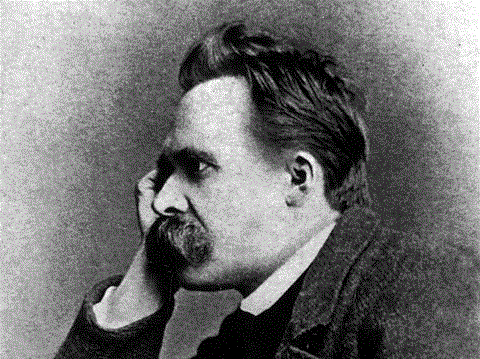
The Digital Nietzsche: Download Nietzsche’s Major Works as Free eBooks
Related Article: Sartre and Nietzsche, by Christine Daigle
#friedrich nietzche#nietzsche#philosophy#philosopher#humanities#tumblarians#philology#history#thus spoke zarathustra#beyond good and evil#academia#higher education
3 notes
·
View notes
Text
10/10/17: THE BAD SEED

I haven’t seen THE BAD SEED in many years. This was a mistake. Everybody who’s anybody knows about Mervyn LeRoy’s 1956 movie that was adapted from Maxwell Anderson’s 1954 play that was in turn adapted from William March’s novel of the same year. The story was born of an era in which the growing colloquial popularity of psychoanalysis, and an apparent plague of juvenile delinquency, fed into the inexhaustible argument about nature versus nurture, regarding pathological criminality. Luckily for us, THE BAD SEED’s collective contributors, in their various formats, have had the good sense to twist away from petty theft and angsty rebellion, and focus instead on the idea of pure evil.

In the film version of our current concern, Patty McCormack (looking not unlike LOST HIGHWAY’s Robert Blake, above) reprises her acclaimed Broadway performance as Rhoda Penmark, a prissy eight year old whose burgeoning psychopathy is about to ruin her mother Christine’s life. No sooner does the shared love of their life, army dad Kenneth, go away on military duty, then Rhoda is implicated in the freak death of a classmate who just happened to have won a medal for penmanship out from under the perfectionistic little girl. Rhoda’s typically theatrical goodness then takes on a dark, manipulative cast, which even her naive mother cannot ignore. Whether or not Rhoda did the deed quickly becomes less the question than whether Christine (a tremulous Nancy Kelly) can prevent her from killing again, given the myriad adults who suspect her, and others who simply have more treasures to be gained from their deaths. As the ending title card insists, THE BAD SEED “dares to be startlingly different” to such a degree that one is beseeched “not (to) divulge the unusual climax of the story.” However, you can more or less imagine what it is.
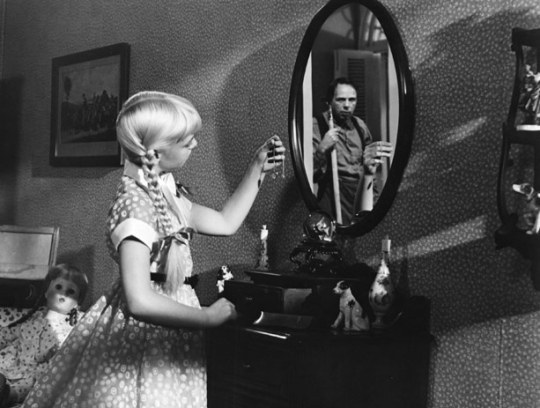
LeRoy’s film adaptation is interesting not only in its theorizing about psychological malignancy in children, way before THE GOOD SON or HALLOWEEN or even WE NEED TO TALK ABOUT KEVIN. It also presents a curious combination of treacly 1950s performances, with the realistic tics, spasms and outbursts of a person on the verge of a nervous breakdown. On one end of the spectrum you have William Hooper as Colonel Kenneth, whose blithely expressed death wish is hilarious unequal to the very real tragedy befalling his family. On the other end, you have the movie’s second best actor, Eileen Heckart, as the bereaved Mrs. Daigle, mother of the late penmanship winner, who drunkenly stumbles into the Penmark home intermittently to confront Catherine about the evils of suppressing evidence. Finally, and above all else, there is Ms. McCormack’s Rhoda, whose stuck up, sociopathic performance is so perfect that it feel superfluous to even describe it.
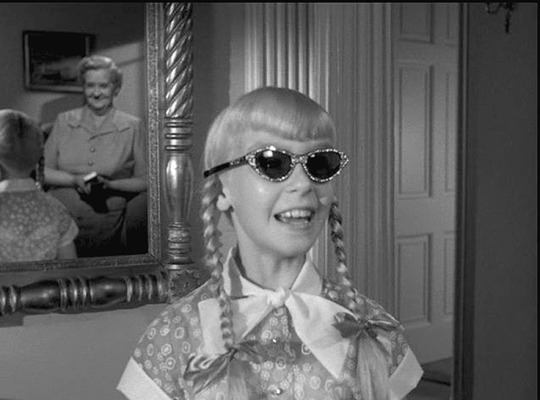
Some of you may relate to the fact that I’ve seen John Waters’ special THIS FILTHY WORLD so many times that I now find it impossible to separate him from my thoughts about THE BAD SEED. Waters discusses his obsessive childhood idolatry of the movie’s pint-sized slasher so powerfully that it permanently weds her character to Dreamland icons from Peggy Gravel to Queen Carlotta. When Rhoda angstily makes her cataclysmic confession that she "kept on hitting" Claude Daigle, she actually sounds just like Divine, raspily snarling about the fate of her deserving victim. McCormack isn’t the only performer to nail that Waters note, though. Henry Jones, as the psycho groundskeeper LeRoy who inevitably sees Rhoda for what she is, almost seems to offer a straight version of Channing Wilroy, or Raymond Marble. The rest of THE BAD SEED’s self-parodic snobs may be as much sources for John Waters’ square characters as the high society villains of any Douglas Sirk melodrama.

Of course, I can pile up all the outrageous cultural comparisons I want, but the fact remains that LeRoy’s BAD SEED distinguishes itself with a very special melange of purity, ignorance, and virulent corruption, that is hard to beat. I spend a lot of time thinking about the notion of innocence, and how we apply to it children, to their detriment. This may be why I’m so increasingly fond of Lifetime and Oxygen Network productions that locate the eternal struggle between good and evil among nuclear family members. Most people seem to define innocence, morally, as a natural void of carnal inclination, be it sexual or violent. It seems to me that innocence is actually a natural void of moral conceit; that the ultimate innocence is found in animals, creatures who act according to utility, without acknowledging any artificial spiritual affect to their behavior. Children can have as sexual and violent an imagination, without any “corrupting influence”, as any living being, without overlapping with ideas about piety and sin. Rhoda Penmark, of course, takes things a step far further than that, but her actions, and the rhetorical flailing of the adults around her, provide a fun foundation for meditations of this sort.
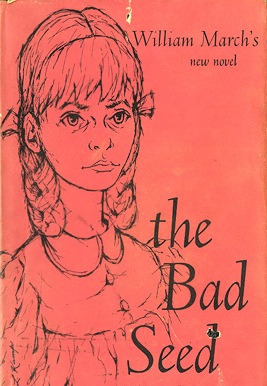
I hate to describe this groundbreaking psychological thriller in much more detail, in case there’s anyone left who has never seen it, so those mythological readers will have to take my word that it’s worth every gripping second of its two hours and nine minutes. Don’t delay: See THE BAD SEED TODAY, the original Lifetime Original Movie.
#blogtober#horror#thriller#psychological thriller#nature vs nurture#juvenile delinquency#patty mccormack#mervyn leroy#maxwell anderson#william warch#nancy kelly#william hopper#henry jones#eileen heckart#evelyn varden#john lee mahin
13 notes
·
View notes
Text
Lauren Daigle - May 20th at the BB&T Center, Sunrise FL

Two-time GRAMMY Award winner Lauren Daigle, who has sold out every one of her shows to date, will open 2020 with her first headlining arena tour, the “Lauren Daigle World Tour.” It follows nearly 70 sold out performances that have taken place since the release of her GRAMMY Award winning album, Look Up Child.
The forty four-city “Lauren Daigle World Tour,” will make a stop at BB&T Center on May 9, 2020.
American Express® Card Members can purchase tickets in the U.S. and Canada before the general public beginning Tuesday, Sept. 17 at 12 PM through Thursday, Sept. 19 at 10 PM. A limited number of VIP Packages will be available to purchase. These exclusive offers include an amazing selection of tickets, access to a preshow song performance and Q&A with Lauren Daigle, a limited-edition tour poster, custom merchandise and more! Tickets will go sale to the general public in US & Canada on Sept. 20 at 10 am at www.laurendaigle.com/tour
“This year has been life changing,” said Daigle. “There’s no better feeling than to be able to look out from the stage and see how people have connected with the songs on this album. Our shows feel like one big party of togetherness, and I can’t wait to create a whole new tour for 2020. It’s going to be so much fun!”
The “Lauren Daigle World Tour” features an all new stage production, design and set list that will be highlighted by Daigle’s raw vocal power and stage presence. She’ll feature some of her hits, including her latest single “Rescue” and the double-Platinum selling #1 single “You Say,” as well as tracks from her previous platinum-selling album, How Can It Be. Folk/soul duo JOHNNYSWIM will join Daigle on select US dates.
To exclusively announce the upcoming dates, iHeartMedia’s LiteFM on-air personalities, Cubby and Christine, hosted an iHeartRadio Special Announcement with Daigle at iHeartMedia headquarters in New York. The event included an intimate performance and Q&A which streamed live on iHeartRadio’s YouTube. In addition, iHeartMedia will broadcast portions of the Q&A on LiteFM on Sept. 17.
0 notes
Text
'What Helps Me Through Everything Is My Faith': Selena Gomez Enters Mental Health Facility After Breakdown
New Post has been published on https://cialiscom.org/what-helps-me-through-everything-is-my-faith-selena-gomez-enters-mental-health-facility-after-breakdown.html
'What Helps Me Through Everything Is My Faith': Selena Gomez Enters Mental Health Facility After Breakdown
Selena Gomez has checked into a remedy facility for stress and melancholy subsequent an psychological breakdown in the hospital.
TMZ studies the singer was hospitalized twice inside the previous couple of months for very low white blood cell count owing to her kidney transplant final year.
During her second go to, Gomez suffered a panic assault. A resource instructed Entertainment Tonight that she has “dealt with despair for awhile” which has escalated this very last year.
Gomez has been open up in the past about her wellbeing troubles, 1st revealing in 2015 that she was diagnosed with Lupus.
Considering that then, she has even opened up about her faith and how she relies on God to assistance get her by way of.
Gomez’s Instagram bio reads, “Gentle, room, zest -that’s God. With him on my facet I am FEARLESS, worried of no a single and almost nothing.”
Last month, the singer spoke to her 144 million followers about her anxiety and depression in an Instagram Dwell chat session.
“Stress and anxiety is a pretty difficult thing, but what will help me as a result of every thing is my religion,” she said.
She also shared that she normally listens to worship music when she’s experience reduced, telling lovers just one of her new favorites is, “This Lady” by Lauren Daigle and actively playing it for them to pay attention.
She stated, “I want to suggest a track for you to listen to…if you like it, no problems if you will not. As some men and women know, I like to pay attention to worship audio and this music, in distinct, would make me truly feel like I’m chatting about that sensation in which, you know, like, I’m not going wherever, I am just displaying up.”
She ongoing, “It is really truly really hard to not get labored up or upset when you constantly really feel like you are carrying out the appropriate point and you’re demonstrating up for people and you happen to be wanting to be, you know, pleasant and you’re carrying out all this stuff but you might be like, ‘Why am I not emotion fantastic?'”
youtube
The news of her current hospitalization comes a several months just after Gomez introduced that she is taking a split from social media.
She wrote, “Update: using a social media break. Again. As much as I am grateful for the voice that social media gives each and every of us, I am equally grateful to be ready to move back again and stay my lifetime existing to the moment I have been offered. Kindness and encouragement only for a little bit! Just bear in mind – adverse reviews can hurt anybody’s emotions.”
In March, Gomez started interning with a world-wide anti-human-trafficking nonprofit, A21, immediately after acquiring an invitation by cofounder Christine Caine.
She’s also a member of Hillsong Church.
(perform(d, s, id) var js, fjs = d.getElementsByTagName(s)[0] if (d.getElementById(id)) return js = d.createElement(s) js.id = id js.src = "http://link.fb.web/en_US/sdk.js#xfbml=1&edition=v2.3" fjs.parentNode.insertBefore(js, fjs)(document, 'script', 'facebook-jssdk'))
Source url
0 notes
Text
Prix Écrans Canadiens : LES AFFAMÉS de Robin Aubert décroche cinq nominations

Les nominations des Prix Écrans canadiens viennent d’être annoncées et Les Affamés se retrouve dans cinq catégories : meilleur film, réalisation (Robin Aubert), maquillages (Érik Gosselin, Marie-France Guy), musique originale (Pierre-Philippe Côté) et interprétation féminine dans un rôle de soutien (Brigitte Poupart).
Hochelaga, Terre des Âmes mène la course avec ses huit nominations, dans les catégories de la direction artistique (François Séguin), des images (Nicolas Bolduc), des costumes (Mario Davignon), des maquillages (Kathryn Casault), de la musique originale (Terry Riley, Gyan Riley), du son d'ensemble (Claude La Haye, Bernard Gariépy Strobl), du montage sonore (Claude Beaugrand), et des effets visuels (Alain Lachance, Yann Jouannic, Hugo Léveillé, Nadège Bozetti, Antonin Messier-Turcotte, Thibault Deloof, Francis Bernard).
Sept nominations pour La petite fille qui aimait trop les allumettes : meilleur film ainsi qu’en direction artistique (Marjorie Rhéaume), en images (Nicolas Canniccioni), en effets visuels (Marc Hall, Jonathan Cyr, Emmanuel Bazin, Clément Natiez, Emmanuelle Gill), en adaptation (Simon Lavoie) et en interprétation masculine et féminine dans un premier rôle (Antoine L'Écuyer, Marine Johnson).
Avec six nominations, C'est le cœur qui meurt en dernier se retrouve dans les catégories du meilleur film, de réalisation (Alexis Durand-Brault), de montage (Louis-Philippe Rathé), d'adaptation et d'interprétation masculine dans un premier rôle (Gabriel Sabourin), et d'interprétation féminine dans un premier rôle (Denise Filiatrault).
Les rois mongols obtient aussi six nominations, dans les catégories de direction artistique (Guillaume Couture), de costumes (Brigitte Desroches), de musique originale (Viviane Audet, Robin-Joël Cool, Alexis Martin), de son d'ensemble (Pierre Bertrand, Stéphane Bergeron, Shaun-Nicholas Gallagher, Maxime Potvin), d'adaptation (Nicole Bélanger) et d'interprétation féminine dans un rôle de soutien (Clare Coulter).
All You Can Eat Buddha se retrouve dans les catégories de réalisation (Ian Lagarde), de costumes (Gabrielle Tougas-Fréchette), de maquillages (Bruno Gatien), de son d'ensemble et de montage sonore (Sylvain Bellemare), et d'interprétation masculine dans un rôle de soutien (Sylvio Arriola).
Nous sommes les autres se démarque dans quatre catégories, soit en images (Mathieu Laverdière), en costumes (Julie Bécotte), en effets visuels (Jonathan Piché Delorme, Fabienne Mouillac, Alain Lachance, Caroline Guagliardo, Alexandre Tremblay, Thibault Deloof, Benoit Gagnon), et en interprétation masculine dans un premier rôle (Émile Proulx-Cloutier).

Meilleur film
Ava - Kiarash Anvari, Sadaf Foroughi
The Breadwinner - Andrew Rosen, Anthony Leo, Paul Young, Tomm Moore, Stéphan Roelants
C’est le coeur qui meurt en dernier - Richard Lalonde
La petite fille qui aimait trop les allumettes - Marcel Giroux
Maudie - Bob Cooper, Mary Young Leckie, Mary Sexton, Susan Mullen
Never Steady, Never Still - James Brown, Tyler Hagan
Les Affamés - Stéphanie Morissette
Meilleure réalisation
Ian Lagarde - All You Can Eat Buddha
Sadaf Foroughi - Ava
Alexis Durand Brault - C’est le coeur qui meurt en dernier
Aisling Walsh - Maudie
Robin Aubert - Les Affamés
Meilleure adaptation
Anita Doron - The Breadwinner
Nicole Bélanger - Les rois mongols
Gabriel Sabourin - C’est le coeur qui meurt en dernier
Simon Lavoie - La petite fille qui aimait trop les allumettes
Susan Coyne - The Man Who Invented Christmas
Meilleur scénario
Josh Epstein, Kyle Rideout - Adventures in Public School
Sadaf Foroughi - Ava
Sarah Kolasky, Adam Garnet Jones - Great Great Great
Sherry White - Maudie
Kathleen Hepburn - Never Steady, Never Still

Interprétation masculine dans un premier rôle
Nabil Rajo - Boost
Gabriel Sabourin - C’est le coeur qui meurt en dernier
Antoine L'Écuyer - La petite fille qui aimait trop les allumettes
Tzi Ma - Meditation Park
Émile Proulx-Cloutier - Nous sommes les autres
Interprétation masculine dans un rôle de soutien
Sylvio Arriola - All You Can Eat Buddha
Jahmil French - Boost
Sladen Peltier - Indian Horse
Natar Ungalaq - Iqaluit
Ethan Hawke - Maudie

Interprétation féminine dans un premier rôle
Mahour Jabbari - Ava
Denise Filiatrault - C’est le coeur qui meurt en dernier
Marine Johnson - La petite fille qui aimait trop les allumettes
Sally Hawkins - Maudie
Shirley Henderson - Never Steady, Never Still
Interprétation féminine dans un rôle de soutien
Bahar Nouhian - Ava
Oluniké Adeliyi - Boost
Clare Coulter - Les rois mongols
Lucinda Armstrong Hall - Porcupine Lake
Brigitte Poupart - Les Affamés
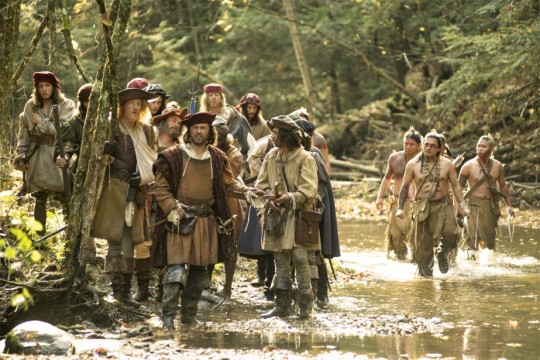
Meilleure direction artistique
Siamak Karinejad - Ava
Guillaume Couture - Les rois mongols
François Séguin - Hochelaga, Terre des Âmes
Marjorie Rhéaume - La petite fille qui aimait trop les allumettes
Sophie Jarvis, Elizabeth Cairns - Never Steady, Never Still
Meilleures images
Sina Kermanizadeh - Ava
Nicolas Bolduc - Hochelaga, Terre des Âmes
Nicolas Canniccioni - La petite fille qui aimait trop les allumettes
Norm Li - Never Steady, Never Still
Mathieu Laverdière - Nous sommes les autres

Meilleurs costumes
Gabrielle Tougas-Fréchette - All You Can Eat Buddha
Brigitte Desroches - Les rois mongols
Mario Davignon - Hochelaga, Terre des Âmes
Trysha Bakker - Maudie
Julie Bécotte - Nous sommes les autres
Meilleur montage
Kiarash Anvari - Ava
Darragh Byrne - The Breadwinner
Louis-Philippe Rathé - C’est le coeur qui meurt en dernier
Stephen O'Connell - Maudie
Simone Smith - Never Steady, Never Still
Meilleurs maquillages
Bruno Gatien - All You Can Eat Buddha
Marlène Rouleau - Bon Cop Bad Cop 2
Kathryn Casault - Hochelaga, Terre des Âmes
Sonia Dolan - The Man Who Invented Christmas
Érik Gosselin, Marie-France Guy - Les Affamés
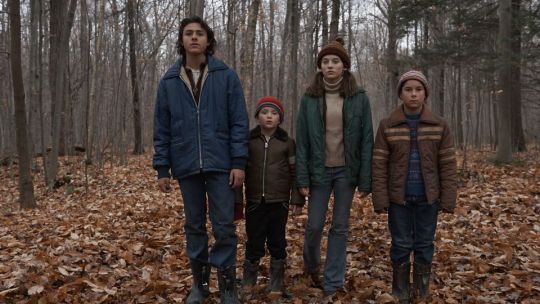
Meilleure musique originale
Mychael Danna, Jeff Danna - The Breadwinner
Viviane Audet, Robin-Joël Cool, Alexis Martin - Les rois mongols
Terry Riley, Gyan Riley - Hochelaga, Terre des Âmes
Ben Fox - Never Steady, Never Still
Pierre-Philippe Côté - Les Affamés
Meilleure chanson originale
Joey Sherrett, Chris Gordon, Nathaniel Huskinson - Boost - "CTS Thief"
Qais Essar, Joshua Hill - The Breadwinner - "The Crown Sleeps"
Dani Bailey - Hunting Pignut – "Rid The Dark"
Meilleur son d'ensemble
Sylvain Bellemare - All You Can Eat Buddha
Philippe Attié - Boost
Pierre Bertrand, Stéphane Bergeron, Shaun-Nicholas Gallagher, Maxime Potvin - Les rois mongols
Claude La Haye, Bernard Gariépy Strobl - Hochelaga, Terre des Âmes
Matt Drake, Nate Evans, Christopher O'Brien - Never Steady, Never Still

Meilleur montage sonore
Sylvain Bellemare - All You Can Eat Buddha
Marie-Claude Gagné - Bon Cop Bad Cop 2
Nelson Ferreira, John Elliot, J.R. Fountain, Dashen Naidoo, Tyler Whitham - The Breadwinner
Christian Rivest, Antoine Morin, Thibaud Quinchon, Guy Pelletier, Guy Francoeur - Goon: Last of the Enforcers
Claude Beaugrand - Hochelaga, Terre des Âmes
Meilleurs effets visuels
Marc Hall - Le Cyclotron
Alain Lachance, Yann Jouannic, Hugo Léveillé, Nadège Bozetti, Antonin Messier-Turcotte, Thibault Deloof, Francis
Bernard - Hochelaga, Terre des Âmes
Marc Hall, Jonathan Cyr, Emmanuel Bazin, Clément Natiez, Emmanuelle Gill - La petite fille qui aimait trop les
allumettes
Greg Behrens, Brendan Taylor, Jasmine Scott, Martin O'Brien - The Man Who Invented Christmas
Jonathan Piché Delorme, Fabienne Mouillac, Alain Lachance, Caroline Guagliardo, Alexandre Tremblay, Thibault
Deloof, Benoit Gagnon - Nous sommes les autres

Meilleur long métrage documentaire
Manic - Kalina Bertin, Marina Serrao, Bob Moore, Mila Aung-Thwin, Daniel Cross
Sur la lune de nickel - Christine Falco, François Jacob, Vuk Stojanovic
Resurrecting Hassan - Carlo Guillermo Proto, Roxanne Sayegh, Pablo Villegas, Maria Paz Gonzalez
Rumble: The Indians Who Rocked the World - Catherine Bainbridge, Christina Fon, Linda Ludwick, Lisa Roth, Stevie Salas, Tim Johnson, Diana Holtzberg, Jan Rofekamp, Ernest Webb
Unarmed Verses - Charles Officer, Lea Marin
Meilleures images dans un long métrage documentaire
Vuk Stojanovic, François Jacob, Ilya Zima - Sur la lune de nickel
Duraid Munajim - My Enemy, My Brother
Carlo Guillermo Proto - Resurrecting Hassan
Alfonso Maiorana - Rumble: The Indians Who Rocked the World
Mike McLaughlin - Unarmed Verses
Meilleur montage dans un long métrage documentaire
Roland Schlimme - Long Time Running
Anouk Deschênes - Manic
François Jacob, Jéricho Jeudy - Sur la lune de nickel
Benjamin Duffield, Jeremiah Hayes - Rumble: The Indians Who Rocked the World
Frank Cassano - Sled Dogs
Meilleur court métrage documentaire
Babe, I Hate To Go - Andrew Moir
Take a Walk on The Wildside - Lisa Rideout, Lauren Grant, Sasha Fisher
Three Thousand - Asinnajaq, Kat Baulu

Meilleur court métrage dramatique
La course navette - Maxime Aubert, Audrey D. Laroche
Fluffy - Lee Filipovski
Garage de soir - Daniel Daigle, Aurélie Breton
Tout simplement - Raphaël Ouellet, Annick Blanc
Pre-Drink - Marc-Antoine Lemire, Maria Gracia Turgeon
Meilleur court métrage d’animation
DAM! The Story of Kit the Beaver - Kjell Boersma, Josh Clavir
Fox And The Whale - Robin Joseph
Hedgehog’s Home - Eva Cvijanović, Vanja Andrijević, Jelena Popović
Manivald - Chintis Lundgren, Draško Ivezić, Jelena Popović
The Tesla World Light - Matthew Rankin, Julie Roy
Prix Découverte John-Dunning
Black Cop - Cory Bowles, Aaron Horton
The Devout - Connor Gaston, Amanda Verhagen
Wexford Plaza - Joyce Wong, Matt Greyson, Harry Cherniak
2 notes
·
View notes
Text
Download Music For Free
https://ift.tt/2EXBOXq
Goûtez les possibilités est la nouvelle signature de marque de Natrel, dévoilée dans une campagne nationale intégrée, signée Lg2 et qui met de l'avant l'utilisation des produits laitiers dans la cuisine.
L'offensive, qui vise à présenter l'étendue de la gamme de produits Natrel, utilise la créativité culinaire pour illustrer comment une recette peut être bonifiée d'une touche de produits laitiers et ce, quelle que soit l'occasion.
[embedded content]
«Natrel, c’est une marque de produits laitiers qui va bien au-delà du lait. La campagne propose un nombre infini de possibilités culinaires tout en montrant différentes façons de briser la routine et d’inspirer les consommateurs par sa gamme complète de produits laitiers de qualité supérieure», explique Mylène Couture, directrice marketing chez Agropur.
«Natrel, c’est un réel complice culinaire pour tous les amoureux de bouffe qui prennent plaisir à cuisiner. Le défi était de créer un discours cohérent sur tous les points de contact, pour offrir une vision claire aux consommateurs», ajoute Anne-Marie Leclair, associée et vice-présidente, stratégie et innovation, de Lg2.
En plus des messages télé, la campagne se décline sur le web, en magasins et en affichage ainsi que dans le magazine Ricardo.
[embedded content]
Une vitrine web remaniée
En plus de la campagne, Natrel en profite pour dévoiler un rafraîchissement de ses emballages ainsi qu'un tout nouveau site web, qui présente maintenant une variété de recettes mettant en vedette les produits laitiers.
Enfin, le Bistro Natrel, une nouvelle unité mobile, s'ajoute à l'arsenal marketing de la marque. Le Bistro Natrel ira à la rencontre des consommateurs dans divers événements pour faire la promotion des produits laitiers Natrel. Il sera d’ailleurs au Vieux-Port de Montréal lors de l’ouverture du Bassin Natrel le 19 mai prochain, ainsi qu’à Toronto au Harbourfront Centre.
Annonceur: Natrel – équipe de marque: Mylène Couture, Sonia Palazzo, Josianne Ledoux, Christine Comeau-Friset, équipe digitale: Karine Schiller, Audrey Paquette
Agence: Lg2
Vice-présidence création: Marc Fortin, Claude Auchu
Direction de création: Stuart Macmillan, Nicolas Baldovini, David Kessous
Création: Philippe Leduc, Annika Ramchandani, Pierre-Luc Loranger, Gabrielle Godbout, Jean Landry, Marine Intartaglia, Jean-François Perreault, Vincent Bélanger, Jocelyn Leroy, Sophie Valentine, Marie-Pier Daigle, Jean-Michel Tardif, Hélène Fortin
Planification stratégique: Anne-Marie Leclair
Expérience utilisateur: Mathieu Parent
Service-conseil: Mélanie Châteauneuf, Virginie Wérotte, Yanick Nadeau, Madeline Dumayne, Vanessa Dicaire, Delphine Lombard, Joanie Couillard
Production d'agence: Isabelle Fonta, Isabelle Thouin, Mélanie Thérien, Louis Dorval, Frédéric St-Denis
Photographie/campagne: Olivier Staub
Photographie/web: Zetä Production - Virginie Gosselin
Réalisation: Olivier Staub
Direction de la photographie: Olivier Staub
Production: Morrison
Post-production: Shed
Studio de son / Ingénierie: Apollo / François Bélanger
Musique: Apollo, une boutique de Mile Inn
Développeurs: Pure Cobalt
Médias: Touché!
Let's block ads! (Why?)
0 notes
Text
The Written Version of my last post. Hope you enjoy!
They all sat around the table. None of them moved or made an attempt to speak. Theres a long uncomfortable silence until Mr. Daigle cleared his coughed. No one stirred from their spot for moment, then Mrs. Fern adjusts her dress and stands up.
Mrs. Fern: I'd better check on the food. (She looks over her shoulder as she walks to the kitchen.) Don't wait for me you can talk amongst yourselves if you'd like. (She exits into the kitchen.)
There's another moment of silence as Christine adjusts the way her cutlery if placed in front of her. Once sgebus satisfied she looks up and makes eye contact with Mr. Daigle. They both immediately look away. And focus on something, anything else. Mrs. Daigle cleared her throat. She is noticeably drunk and continues to drink wine as she watches Christine through her glass.
Mrs.Daigle: So, Mrs. Penmark. How are you this fine evening. (She says it very passive aggressively, swirling her glass around in her hand.)
Christine: (Christine awkwardly shifts in her seat. ) I'm fine, Mrs. Daigle. It's a pleasure to meet you both. (She breaths out the last her sentence, and forces herself to look at both of them. She looks at Mrs. Daigle first, who is still watching her like a hawk. Then She looks over at Mr.Daigle. He gives her a small smile.)
Mrs. Daigle clears her throat loudly and they both snap to look at her.
Mrs. Daigle: So Christine, about you're little girl...
Christine inhales sharply. She knows where the conversation is going. Mrs. Fern had told her about how Rhoda was the last one to see Claude alive. In fact Mr. Daigle coming over late one night while his wife was passed out to ask about that is how she met him before all of this. Of course they couldn't let Mrs. Daigle know they had ever even seen each other. She tensed up and looked in her lap.
Christine: Rhoda is... She's well- (She stutters and as she grasps at words or anything to say. She feels something, and looks at her hands under the table. Mr Daigle has reached over and has is holding one if her hands in both of his. She looks up at him, to see him looking around the room, away from her casually humming. He's humming a tune Christine immediately recognizes. "When you wish apon a star" by Cliff Edwards. That was her favorite song. She felt him squeeze her hand under the table. Christine straightened and looked up at Mrs. Daigle who had in her drunken state, become intense focused on her reflection on her plate.)
Christine: Rhoda is doing just fine thank you.
Mrs. Daigle looks up from her plate, a blank look on her face. After a moment her expression shifts to angerbwnd she places her glass loudly on the table. Christine flinches and Mr. Daigle shifts the way he's holding her hand and wraps his hand around her wrist to steady her. He actually looks at her and they share a look of gratitude. It was nice, having someone come there beside you even if you couldn't really talk normally to each other. Mr. Daigle was grateful to have someone who understood how he was also greiving over Claude and the fact that she actually loved him. Christine was grateful just for him being there. He was her safety line. She never had that before. Not with Kenneth, not with anyone. Mrs. Daigle is about to say something, when Mrs.Fern walks in. )
Mrs. Fern: The food is done! I'll bring it over.
Christine and Mr.Daigle look at each other. They could make it through this meal together. And that was a beautiful thing.
FIN
0 notes